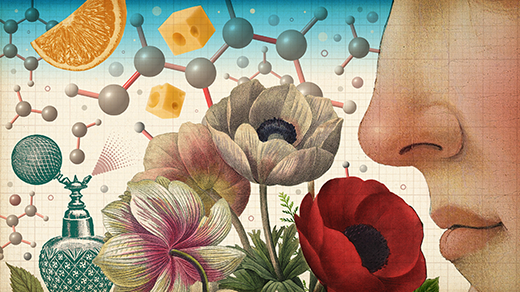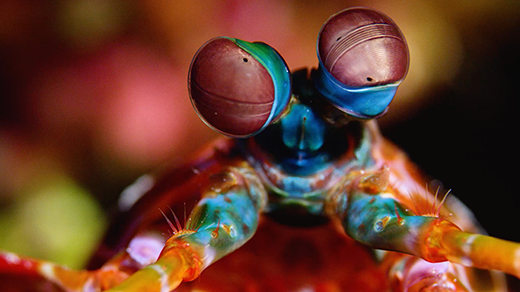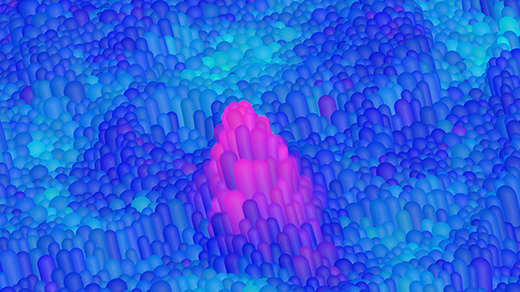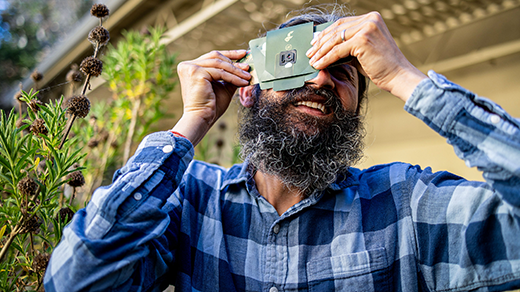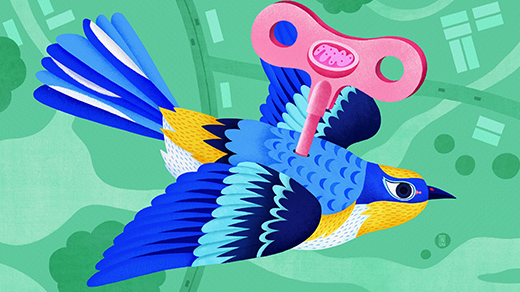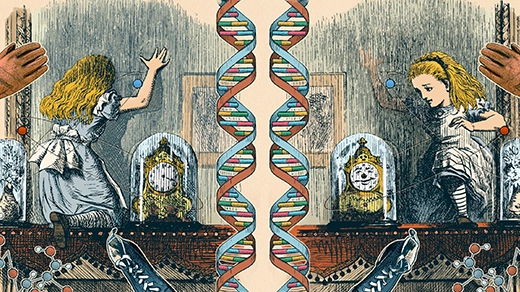What's up in
Biology
Latest Articles
RNA Is the Cell’s Emergency Alert System
How does a cell know when it’s been damaged? A molecular alarm, set off by mutated RNA and colliding ribosomes, signals danger.
How Smell Guides Our Inner World
A better understanding of human smell is emerging as scientists interrogate its fundamental elements: the odor molecules that enter your nose and the individual neurons that translate them into perception in your brain.
When Did Nature Burst Into Vivid Color?
Scientists reconstructed 500 million years of evolutionary history to reveal which came first: colorful signals or the color vision needed to see them.
The Ecosystem Dynamics That Can Make or Break an Invasion
By speedrunning ecosystems with microbes, researchers revealed intrinsic properties that may make a community susceptible to invasion.
How Much Energy Does It Take To Think?
Studies of neural metabolism reveal our brain’s effort to keep us alive and the evolutionary constraints that sculpted our most complex organ.
How Paradoxical Questions and Simple Wonder Lead to Great Science
Manu Prakash works on the world’s most urgent problems and seemingly frivolous questions at the same time. They add up to a philosophy he calls “recreational biology.”
‘Turbocharged’ Mitochondria Power Birds’ Epic Migratory Journeys
Slight changes in the number, shape, efficiency and interconnectedness of organelles in the cells of flight muscles provide extra energy for birds’ continent-spanning feats.
How the Universe Differs From Its Mirror Image
From living matter to molecules to elementary particles, the world is made of “chiral” objects that differ from their reflected forms.
The Molecular Bond That Helps Secure Your Memories
How do memories last a lifetime when the molecules that form them turn over within days, weeks or months? An interaction between two proteins points to a molecular basis for memory.

